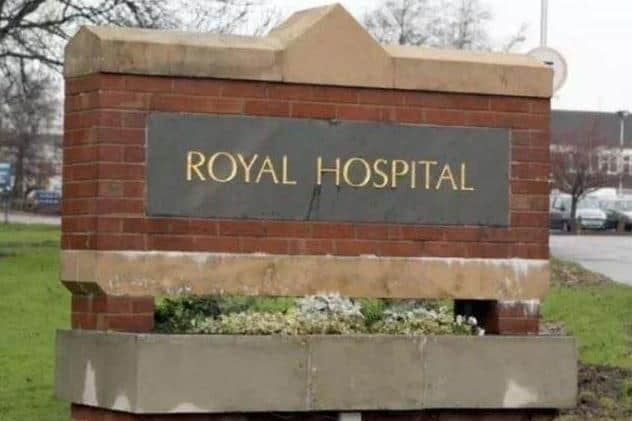Warsop baby 'would probably have survived' if doctors had admitted his mother when planned birth was delayed
and live on Freeview channel 276
Kit Aaron Callanan had been due to be born by induction at Leeds Teaching Hospitals on January 13 last year, a hearing at North Derbyshire Coroners’ Court heard on Friday, May 14.
But when she called the trust that morning, she was told the birth had been put back due to a shortage of cots and was told to attend Chesterfield Royal Hospital, which was managing the more routine sides to her pregnancy, in case of emergency.
Advertisement
Hide AdAdvertisement
Hide AdSherryl Callanan had called the Leeds trust the following day to be told again that no cots were available and had attended Chesterfield Royal on January 14 for a routine appointment, but had returned home that night.


But on January 15, Mrs Callanan was having a scan at Chesterfield Royal when she went into labour – at the same time receiving a call from the Leeds trust saying a cot was finally available.
However, because the mother-of-four had a history of quick births, it was deemed impractical to convey her the 58 miles to the specialist centre and Kit was born in Chesterfield, where he lived for just two hours.
At his 20-week scan, Kit had been diagnosed with transposition of the main arteries leading from his heart – meaning that they were the wrong way round – and would have needed emergency surgery shortly after his birth, the inquest was told.
Advertisement
Hide AdAdvertisement
Hide AdLeeds was chosen as Kit’s place of birth because it has a cardiac neonatal unit, where emergency procedures could have taken place shortly after he was delivered.
Giving his narrative verdict, Peter Nieto, area coroner for Derbyshire, pointed to breakdowns in communication between the two hospitals – but said that a shortage of specialist cots, plus problems with the recruitment and retention of specialist nursing staff within the NHS was also at the heart of the failure.
He also said that once Leeds Hospitals realised they would not be able to induce Mrs Callanan on January 13, she ought to have been offered an antenatal bed on the specialist unit as a precaution.
Giving his verdict, he said: “Kit died because he did not receive the emergency treatment which had been planned for him.
Advertisement
Hide AdAdvertisement
Hide Ad“There were no neonatal cots available at the centre on the day he was due to be induced, or the following day.
“Significantly, his mother should have been offered an antenatal bed at the centre, and it is likely that, if they had, Kit’s death would have been avoided.”
He also said that staff at Chesterfield had not fully appreciated the severity of Kit’s heart condition, that not enough consideration had been given to the distance from Warsop to Leeds, and the difficulties this could have caused if Mrs Callanan had gone into labour – or that she had a history of quick births.
The inquest, which opened in July 2020, had already ruled Kit’s cause of death had been congenital transposition of the great artery.
Advertisement
Hide AdAdvertisement
Hide AdThe inquest heard that procedures had now been altered, but the coroner expressed his disappointment that meetings had not subsequently taken place between the two hospitals.
